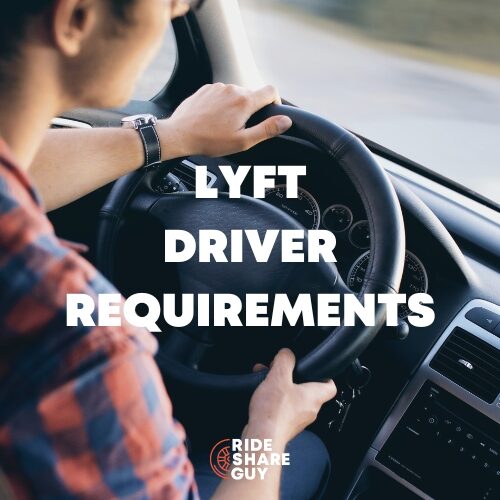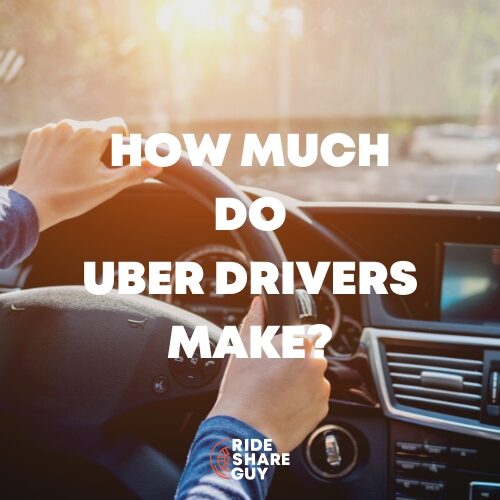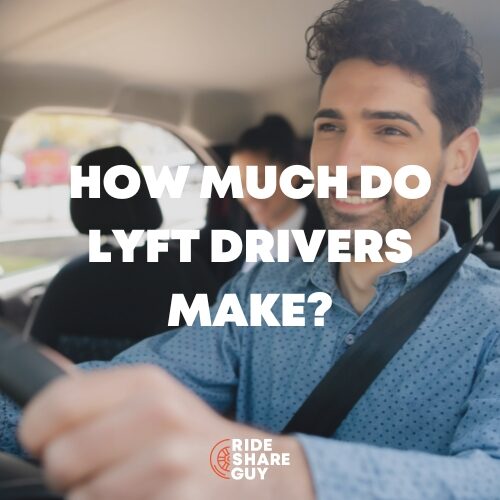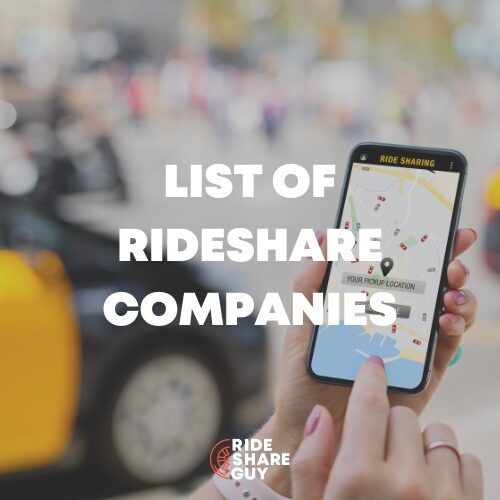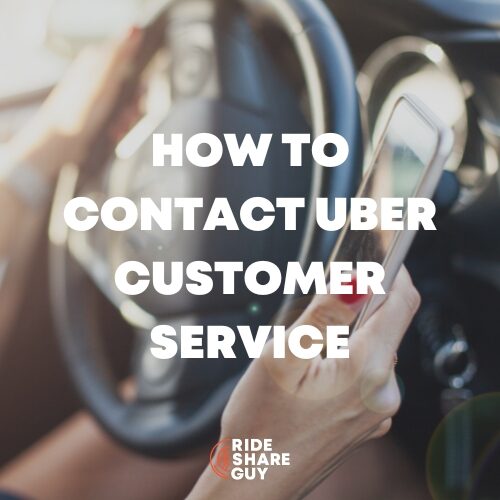Have you ever wondered what Uber execs really think of drivers? Sure, we’ve seen the former Uber CEO Travis Kalanick’s insulting video, but that was a while ago and things have changed – right? Senior RSG contributor John Ince shares an online exchange with a former Uber employee that, if true, shows us how Uber execs view drivers.
If it’s real, the recent Uber Ask Me Anything on Reddit that I read is explosive. In this AMA, as Reddit’s Ask Me Anythings are known, an outspoken ex-Uber employee made him or herself available to the Reddit community for an Ask Me Anything (AMA) session. We get an eye-opening view from the inside that many of us suspected, but were never quite sure was the case.
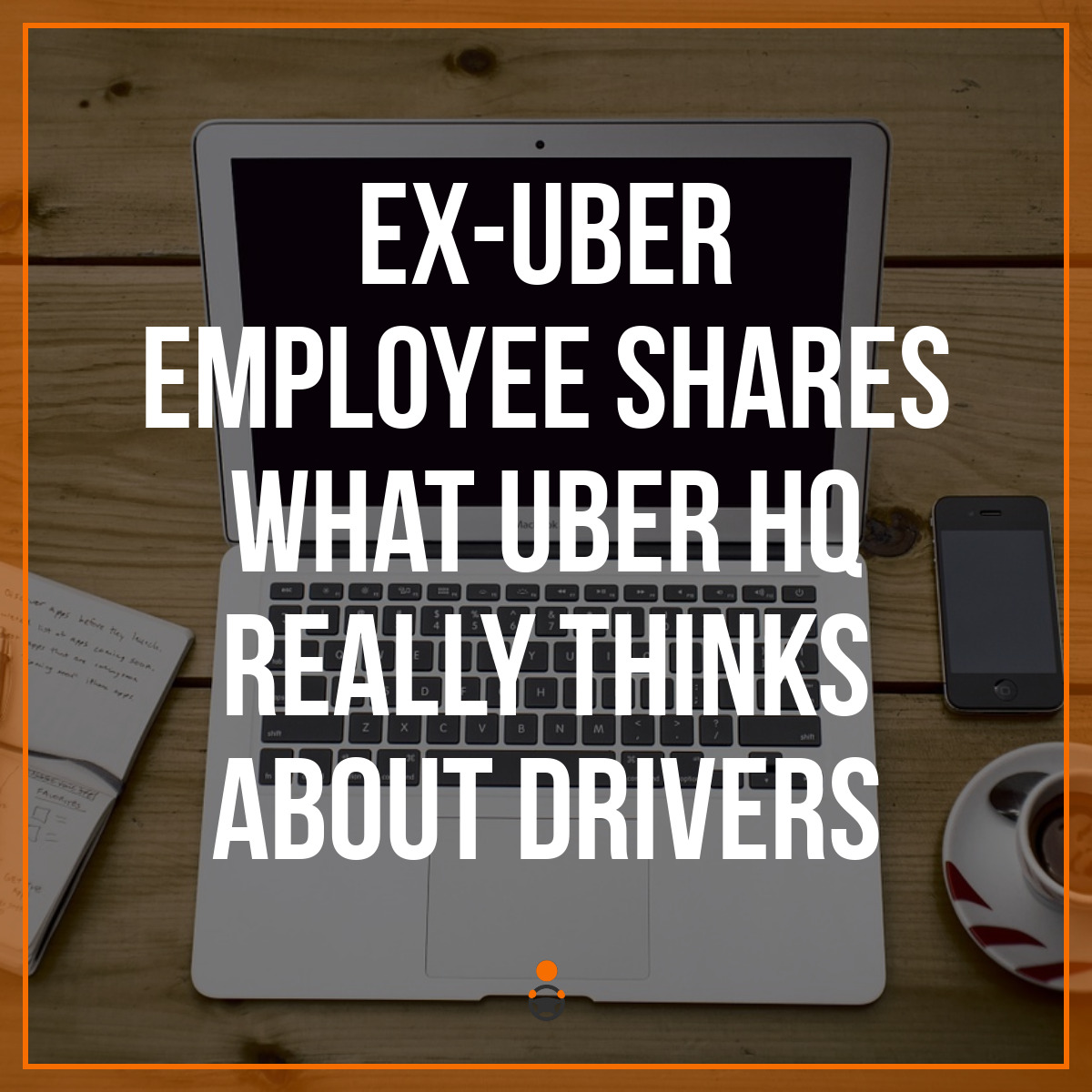
Thanks to reader Tony Pierce on Twitter for sharing this with us!
Hey @TheRideshareGuy,
Did you happen to catch the AMA the former Uber employee did the other day?
Basically he said all the fears drivers had about Uber are true: they hate us, they lie, and they don’t care bc now they’re filthy rich: https://t.co/3gyXeSGn9v
— tony pierce (@busblog) May 18, 2019
Disclaimer: But before we even begin here, we need to at least express some measure of skepticism – since we do not know (s)he is real. In this spy vs spy atmosphere in corporate life, it’s not entirely out of the realm of possibility that we’ve even got someone being paid by Lyft to do this. (S)he offers no evidence of employment at Uber. One would think that (s)he would be able to submit a copy of a W-2 or bank statement to verify employment, but s/he says Uber confiscated all employment documentation. Here’s an exchange on this in the AMA.
Do you have any proof to verify any of this like employment get ect.?
[–]OmahaSurfCo[S] 3 points 4 days ago
Not really. When I left Uber I was forced to return anything that could identify me as a former Uber employee. They take privacy very seriously.
My personal opinion – having covered this space for over 4 years as a blogger and part time driver – is that what we’ve got is real and very significant. It’s not very often that the unvarnished truth about a corporation is exposed, but that’s exactly what we’ve got.
It’s a long read, so to help you digest it all, here are my seven takeaways from this Reddit AMA. Since this someone is not identified by name – so we will simply call him (or her) the Truthteller.
Click here to sign up to drive for Uber, Lyft, Postmates or Doordash
7 Takeaways from the Uber Reddit AMA
1) Uber truly does not care about drivers, despite what they say in public.
Here’s what the Truthteller has to say on this:
I worked at Uber HQ in San Francisco for a little more than a year. When I joined I had a choice between working on the rider team or the driver team. I chose the driver team because I believed that Uber was making a (positive) change in the world, was creating jobs and economic opportunity for disenfranchised and vulnerable people, and was constantly striving to make a good thing even better.
It didn’t take long for me to learn that was all bullshit. Uber doesn’t care about drivers, and goes to great lengths to find new ways to squeeze drivers even more than they already do.
A big reason why I left Uber is because the executives and leadership were hypocrites and blatantly lied about the driving experience anytime they spoke in front of a crowd or a camera. Any public declarations that Uber cares about drivers and how Uber is working to make the driving experience better is a lie. Behind closed doors decision makers were openly hostile to drivers.
They don’t care about you. They don’t have your best interests in mind. They think you’re expendable. They actively seek new ways to lower fares (i.e. wages) and increase Uber’s share of those fares.
2) If you think Uber has an ulterior motive in something, you’re probably right.
Here’s a good example on tipping according to the TruthTeller:
The debate at Uber around adding in-app tipping for drivers was the first eye opening realization that Uber really doesn’t care about drivers. There was tons of research done, and everything said that in-app tipping was the easiest slam dunk to improve driver earnings and sentiment. Lyft already had in-app tipping (maybe from the beginning? I can’t remember), and it was a huge differentiator in the platforms.
Lyft was leaning into in-app tipping in their marketing to riders, and was absolutely crushing Uber’s rider acquisition and and rider retention rates.
The concern at Uber was that riders would be inconvenienced by in-app tipping because they might feel weird about not tipping, or feel obligated to tip their driver when they didn’t want to, which the execs feared could lead to a decrease in ridership.
I thought it was turned on by default now, but originally it was designed as an opt-in feature intentionally to prevent as many drivers as possible from activating it. If the feature wasn’t activated, it wouldn’t show up on the riders side, and therefore would spare riders from that potentially awkward situation.
Uber definitely does not pocket the tips, but it sounds like there are still some shenanigans going on to try and prevent drivers from activating the feature. Another example of Uber favoring riders over drivers when making policy decisions.
Click here to rent a car to start driving for Uber today
3) Uber’s algorithms truly are inhumane.
If you feel think the experience of working for Uber is dehumanizing, that’s because that’s the way they designed the system to manage a workforce of over 2 million drivers.
The Truthteller writes about the dispatch system and the algorithms that define it:
The dispatch system (the algorithm) is designed to be ruthlessly efficient. It doesn’t matter if you’ve been waiting around for hours, if you’ve been a loyal driver for years, if you’ve just completed a trip that took you an hour out of the way, if you’ve had nothing but minimum fare trips all day, the dispatch system is designed to make the most efficient match between ride requests and drivers.
4) If you think Uber customer support is a mess, it’s not your imagination. Behind the scenes, it’s probably worse than you think.
Here’s what the Truthteller says:
Customer support at Uber is an absolute cluster fuck. It’s definitely something that a company like Uber with vast amounts of resources (money and people) should be able to solve, but to give them some credit you have to remember that Uber is a global company.
They have to provide support for tens of thousands of drivers, hundreds of thousands of riders, and millions of trips every day. It’s a logistical nightmare, and as of the time I left that team was in absolute disarray.
5) There basically is no justice when dealing with Uber
Deactivations are not subject to any reasonable review process, simply because Uber support is overwhelmed by the scale of problems they deal with.
In the words of the Truthteller:
As for getting deactivated from the platform, you really don’t have many options. You can keep trying to contact the support rep to get some help, but the support team basically doesn’t exist, and what support does exist is overwhelmed by the scale of Uber’s operations and can barely do anything for you based on time constraints.
If I remember correctly, support reps spend just a few seconds reviewing each case before deploying some sort of canned response that may or may not have anything to do with your problem. It typically took drivers at least 5 interactions with customer support to get a relevant response, and even then the result probably won’t change in your favor.
Click here for rideshare insurance information and options
6) Uber’s emphasis on driverless cars is basically an acknowledgement that the company will never be able to generate enough profit to please investors and satisfy drivers.
The Truthteller writes:
Driver churn (technical term for drivers quitting) is an existential threat to Uber. Autonomous driving is the only way Uber survives in the long term. Same is true for Lyft and every other ride hailing app worldwide. At some point, there will be no drivers willing to work for Uber, so it’s a sprint to develop autonomous driving before things fall apart.
Why are they screwing drivers in the meantime? I think it’s a combination of 1) because they can, 2) because they want to, and 3) because they have to.
Until the equation changes, Uber has been able to consistently cut fares and a squeeze drivers without things falling apart, which has earned the founders and investors and employees millions and billions of dollars. Why would they stop as long is that routine continues to work? …
I don’t think there is a target for where fares are dropping to, but it’s not speculation that Uber (and Lyft) are going to keep dropping fares until they can’t. It’s a process called test and iterate. You test lowering rates for a small group of people, and do some math to determine if the changes will have a negative impact if deployed to the entire market. If the math says it won’t have a negative impact, they’ll drop the fares for everyone. If the math says it will have a negative impact, they won’t drop the fares for everyone.
7) If there is a positive in all of this, it’s that some people like Susan Fowler and this truth teller do (or rather did) work for Uber and were courageous enough to speak out about the toxic culture there.
The Truthteller sums it up thusly:
If you’ve heard the term ‘genius asshole’ in regards to Uber’s culture I think that’s about as short and sweet as you can make it. Although the ‘genius’ part of that is debatable. There were lots of unbelievably stupid people who worked at Uber.
Basically the people who got ahead (promotions) and reaped a majority of the rewards (pay increases, bonuses, stock options) were the people with the worst behavior.
Throwing people under the bus was seen as a good thing. Taking credit for other people’s work was seen as a good thing. Hoarding information or data that could be helpful to others, and causing their failure was seen as a good thing.
Helping a struggling teammate was seen as a bad thing. Giving credit to team members for their contributions to a project was seen as a bad thing. Sharing information that helped another person succeed was seen as a bad thing.
Office politics was everything at Uber. The perception of being important in the form of being invited to meetings with other seemingly important people, and talking loudly at those meetings, making bold claims regardless of how false those claims might be was the ticket to success.
Doing actual work was basically meaningless at Uber.
I could go on and on, but for someone like me who believes that rewards should be given based on merit, not popularity, and believes that rewards should be denied to people who lie, cheat and steal Uber was a terrible place to work.
Click here to learn how to make MORE money while driving for Uber and Lyft
What Did We Learn from the Uber Reddit AMA?
Well, there you have it. Those of us who have been covering this amazing phenomenon called Uber have been trying to make sense of information about a company that often seems Orwellian. For me, it’s created a sense of cognitive dissonance, and sometimes put me in a deep funk because I like to believe that people are better than this.
As a general rule, I give people the benefit of the doubt, but here the doubts were compounded against each other – Susan Fowler letter, the Greyball revelations, the horror stories about customer service, the deceptions about pay and the amounts that Uber was taking out of the drivers shares, the fantasy scenarios about driverless cars, and finally the hype surrounding the IPO.
In my humble opinion, Uber will go down in business history as one of the all time missed opportunities. The elite investors of Silicon Valley were all pushing and shoving to get in – and with good reason. Most will get something approaching a 10,000x return on their money. Travis Kalanick is worth over $5 billion now.
Meanwhile, over 2 million drivers are still working a few extra hours hoping to get that bonus so they can pay the rent this month. It’s not a pretty picture, but at least we can thank a few employees there, like this truth teller – if indeed he or she is a truth teller. I suppose that will be a question we’ll have to live with.
What do you think? Is this truth teller real, or is this just another deception?
-John @ RSG
